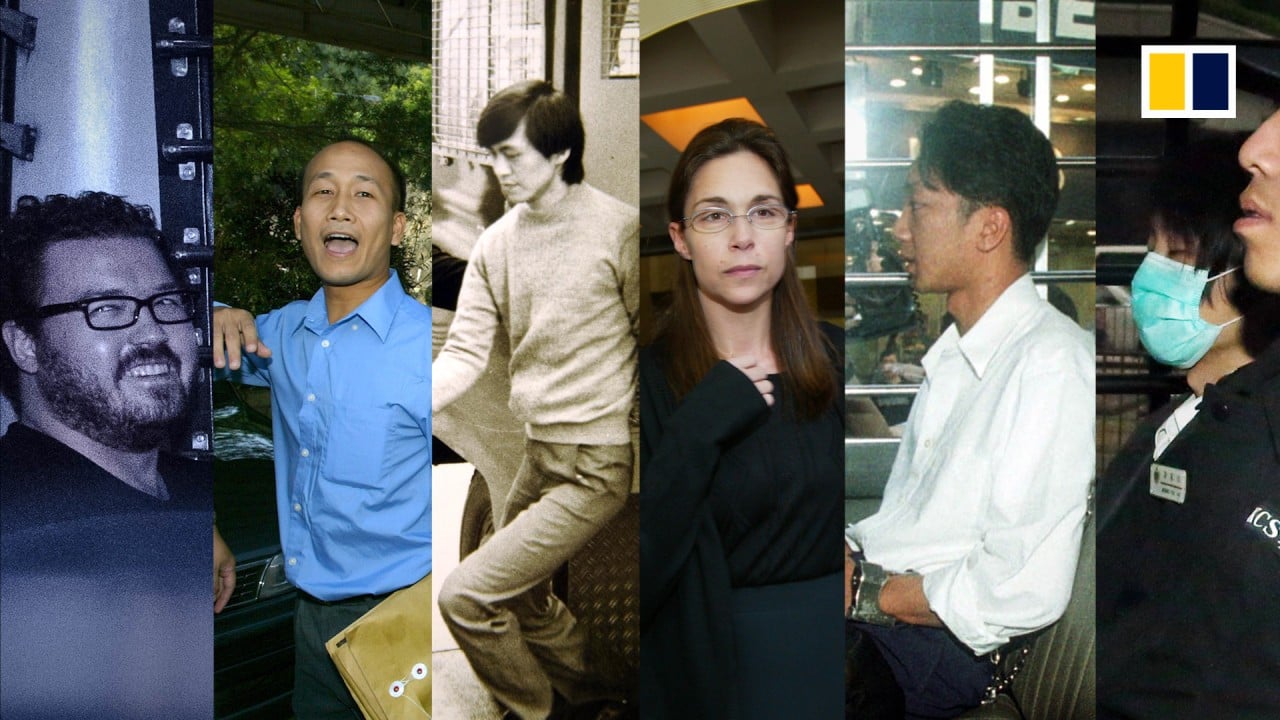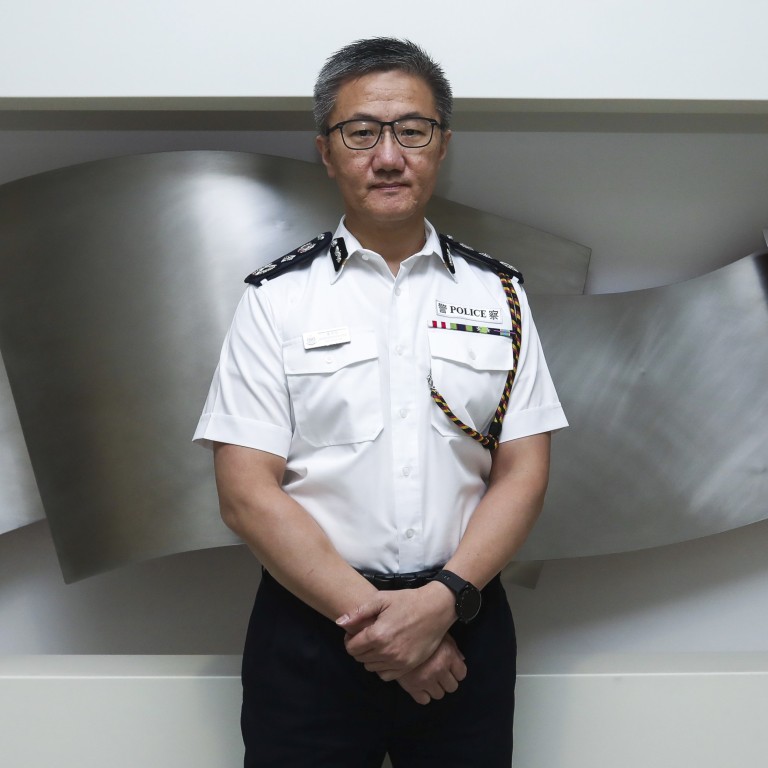
From shoot-outs on Hong Kong streets to online scams raking in billions: police chief Raymond Siu digs into three decades of crime
- Police chief remembers day he was called to robbery carried out by notorious ‘king of thieves’ Yip Kai-foon
- Criminals move battlefields to internet where thousands of trusting members of the public lose their money to scammers
The then 25-year-old had no idea the Police Tactical Unit was about to go after the “king of thieves” Yip Kai-foon, who was firing an AK-47 assault rifle in the streets of Sham Shui Po in broad daylight.
“I was called to the scene to handle an armed robbery. I didn’t feel any fear or know which criminals were involved. After all, such crimes were common back then and I was called upon quite frequently,” the commissioner of police told the Post in an interview earlier as he recalled the city’s crime situation over the past three decades.
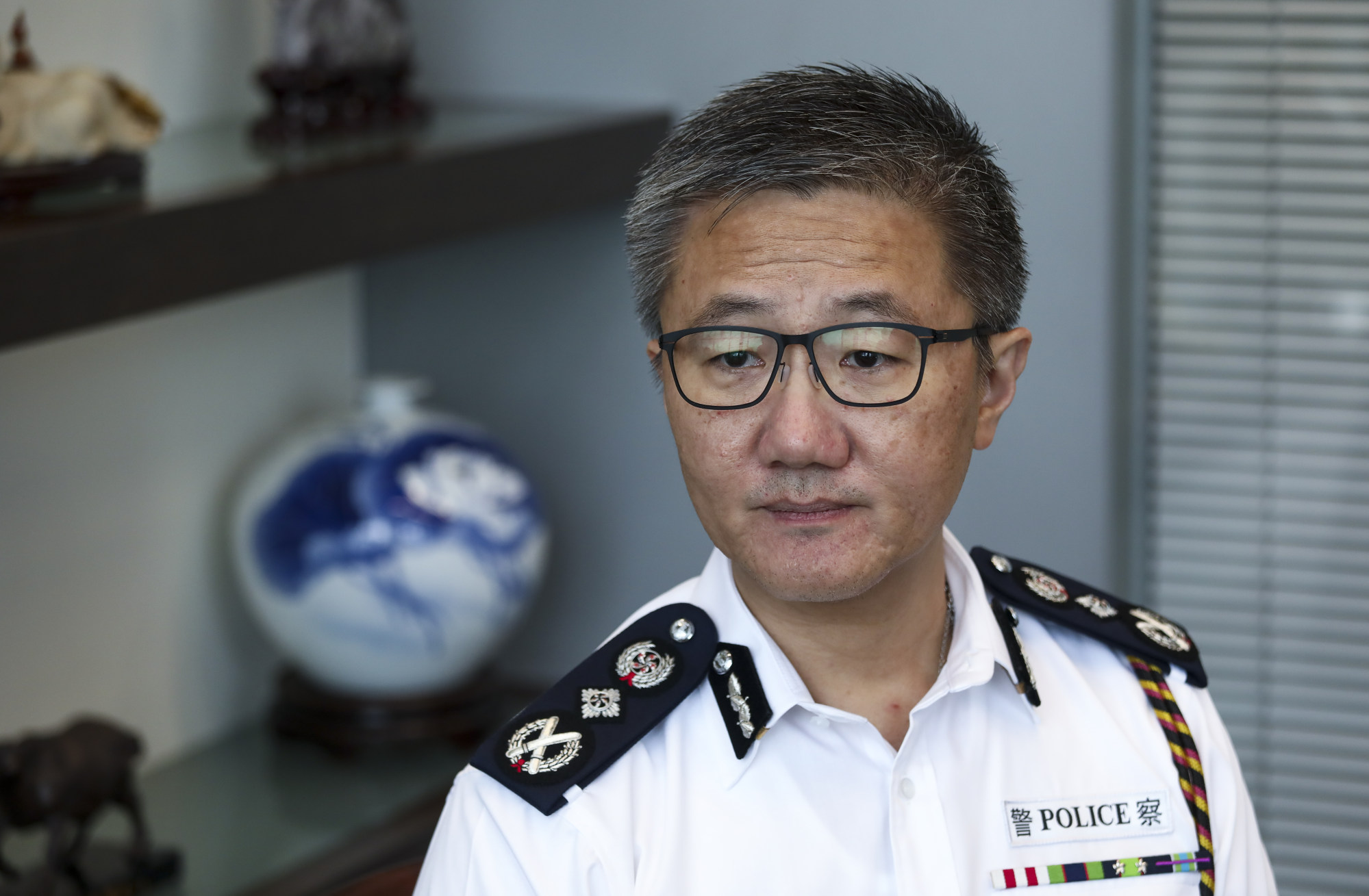
On March 10, 1992, Yip and his gang robbed two jewellery shops on Tai Po Road in Sham Shui Po, during which more than 60 high-velocity AK-47 and pistol rounds were fired at police, with one going straight through the windscreen of an Emergency Unit van.
Hijacking two vehicles as getaway cars and kidnapping the drivers, the gang of eight masked men made off with HK$7 million worth of valuables.
By the time Siu and his team arrived, the scene was littered with dozens of ammunition cases while the culprits had already vanished.
Notorious Hong Kong gangster Yip Kai-foon, who inspired hit film, dead at 55
Yip was one of Hong Kong’s “larger-than-life” crime bosses in the 1980s and 90s when shoot-outs in the city’s streets had become shockingly common, because criminals from neighbouring Guangdong province often carried out high-profile armed robberies of jewellery shops with assault rifles, hand grenades and pistols. The gun battles had prompted the force to expand its structure and strengthen its armaments.
Yip was eventually arrested on May 13, 1996 after a gunfight with police in Kennedy Town. During the shoot-out a bullet hit his spine, paralysing his lower body. He died of cancer in 2018 while serving a 36-year prison stint.
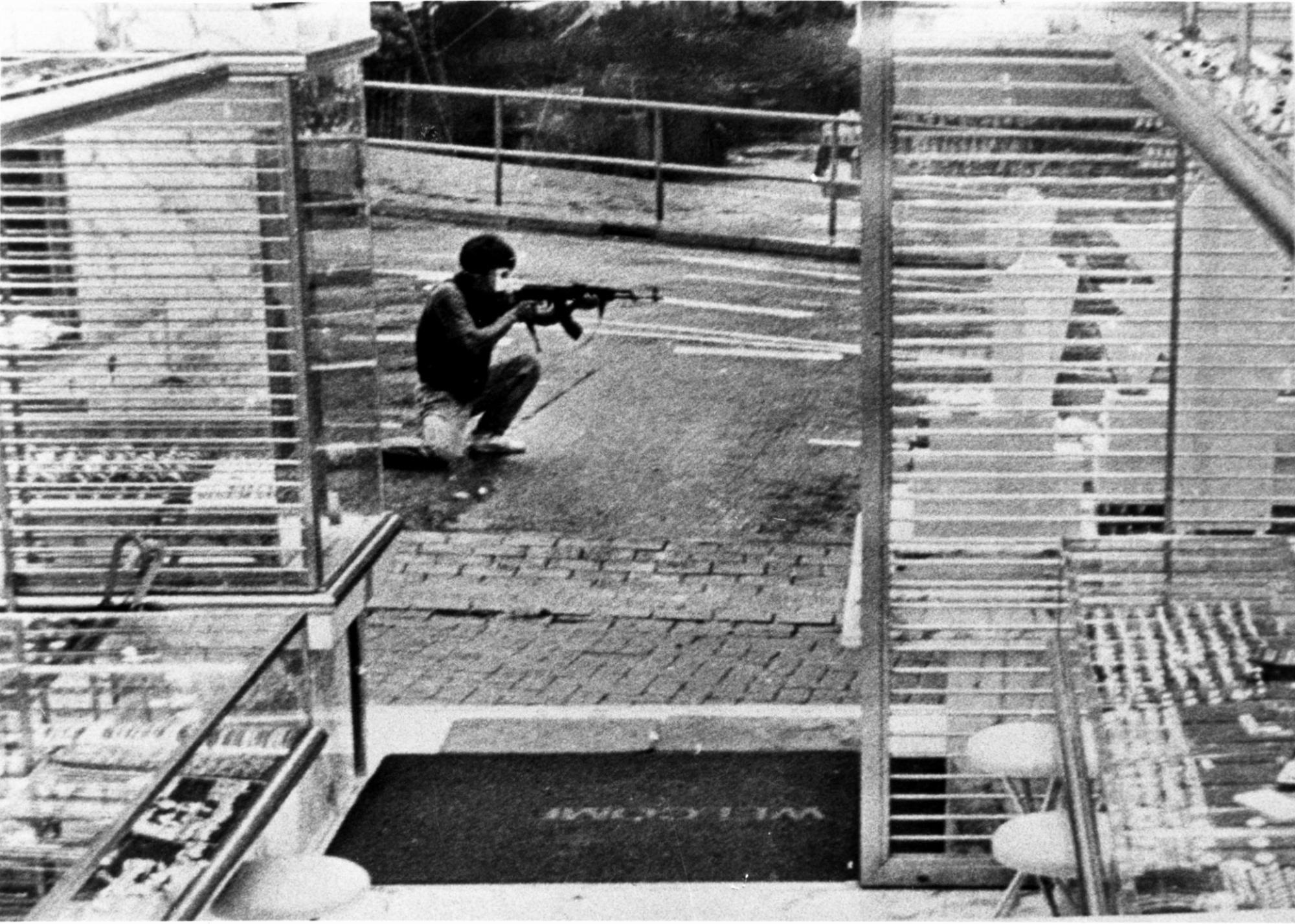
This kind of violence would be unthinkable in today’s Hong Kong, which has one of the lowest violent crime rates in the world. The total number of criminal cases fell from 88,300 in 1990 to 67,367 in 1997 and 64,428 in 2021. More than 400 robbery cases involved real firearms or pistol-like objects in 1990, but no such crimes were recorded last year.
“Over the past decades, Hong Kong has become one of the safest cities in the world. That’s something we should be proud of and cherish,” Siu said.
But Hong Kong police were not relaxed. Criminals had moved their battlefield from the streets to the internet in a bid to evade arrest and pocket more money. The police chief said deceptions accounted for 30 per cent of crime in 2021.
The force recorded 19,249 deception cases last year with losses reaching a record high of HK$6.5 billion. More than 70 per cent of the cases were internet-related. Victims of phone scams had reported losing more than HK$810 million in 2021, compared with HK$16 million in 2005, when such records began. The number of deceptions of all kinds stayed around 1,400 in the early 90s.
HK$144 million lost to phone scammers in Hong Kong Covid-related ruses
Siu said on average, one deception case happened every half an hour in Hong Kong, while the city lost HK$17 million to swindlers each day. Scammers were difficult to catch as they usually operated in other jurisdictions. The chief urged members of the public to stay cautious and report to police whenever they detected anything suspicious.
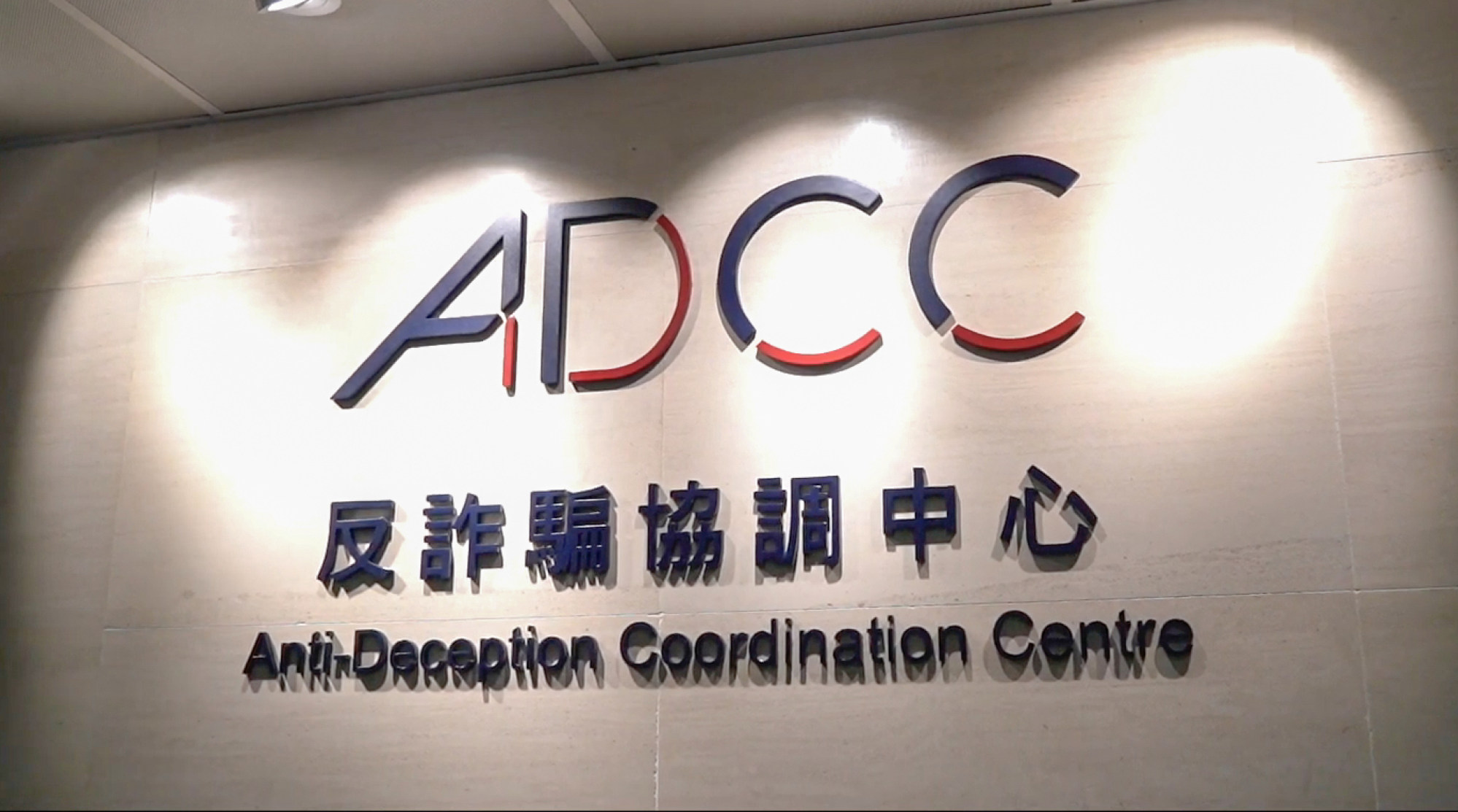
The force’s Anti-Deception Coordination Centre (ADCC) has so far intercepted more than HK$2.3 billion in payments in 833 scams.
“We anticipate that there could be a continued increase in the number of deceptions and that’s why we have been doing a lot of preventive work,” Siu said.
“It is very important for members of the public to act as our eyes and ears … Whenever you encounter any suspicious cases, call the ADCC hotline 18222. It only takes you just a minute or so, then we can give you advice.”
Hong Kong police chief warns viewers to avoid film about city’s social unrest
The months-long protests, which were sparked by a now-withdrawn extradition bill in June 2019, resulted in the arrests of more than 10,200 people. More than 1,700 protesters and 600 officers were injured.
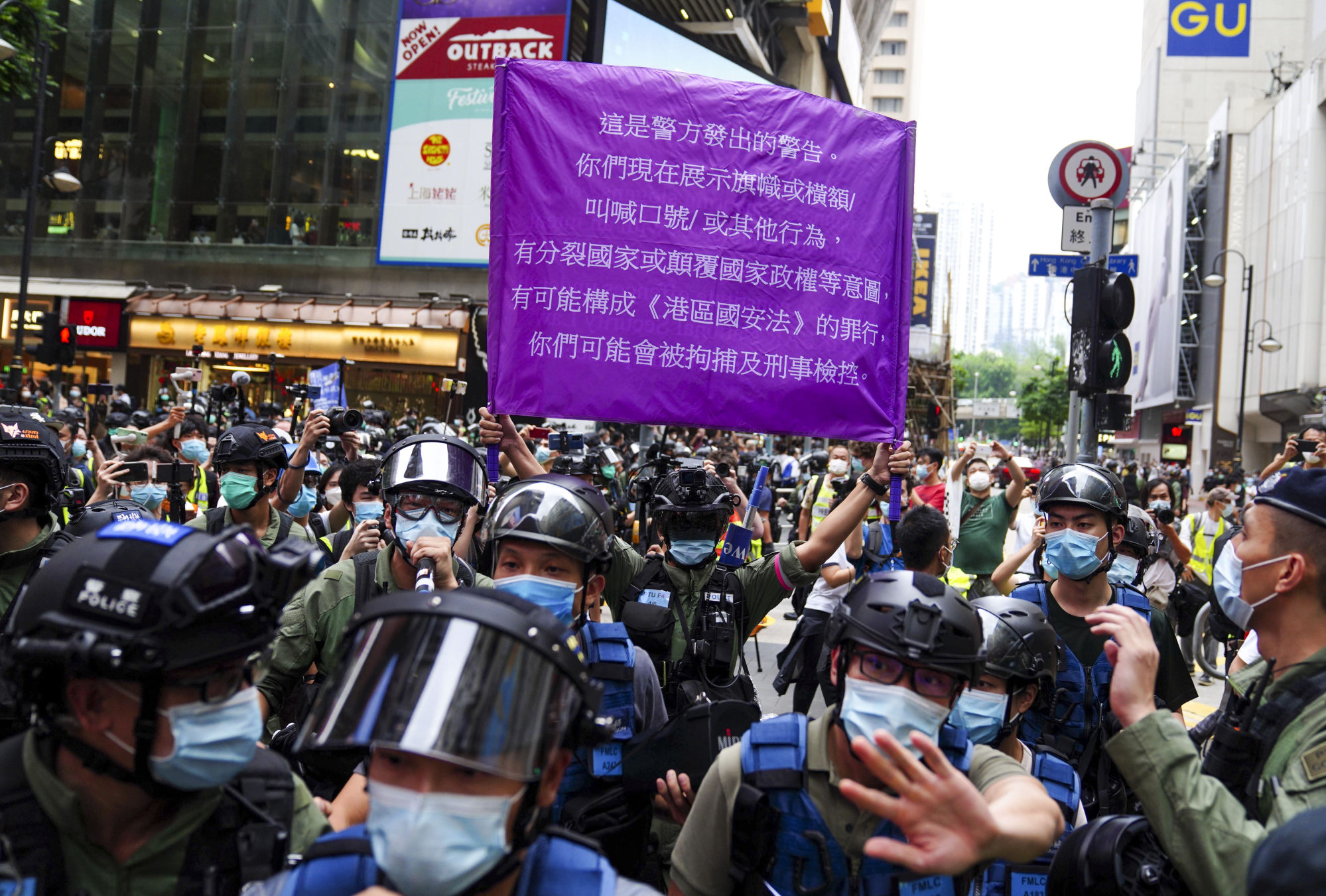
Siu slammed the “architects” behind the protests for demonising the force, trashing the city’s stability and the “one country, two systems” governing principle under the pretext of fighting for democracy.
Looking back, Siu said he learned the importance of quickly clarifying fake news and boosting the force’s transparency, as many residents were puzzled about officers’ intentions and operations during the unrest. He also hoped to give a chance to arrested youngsters who were exploited and affected by fake information but were now remorseful.
“Otherwise, they will continue to be exploited by those people with an ulterior motive,” Siu said.
“If we can make concerted efforts together with members of the public, I can ensure that Hong Kong remains one of the safest cities in the world.”


